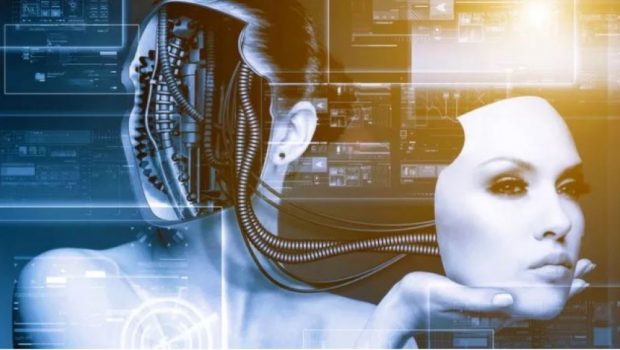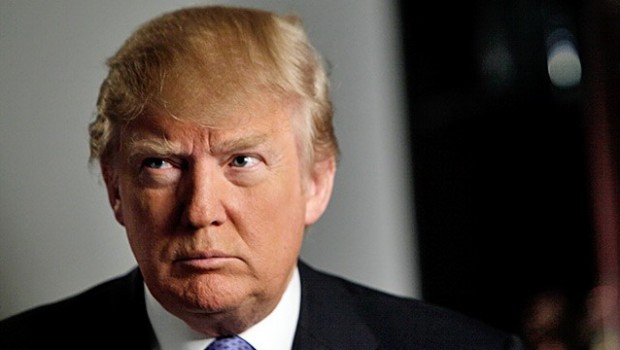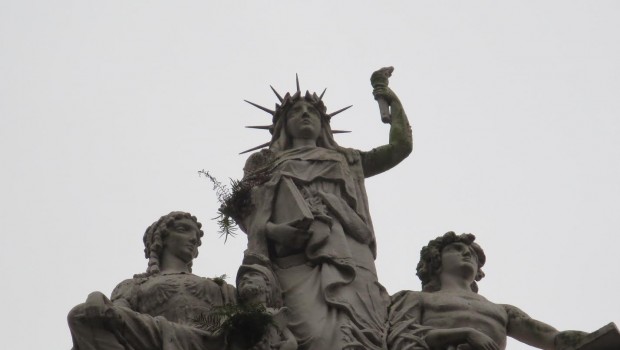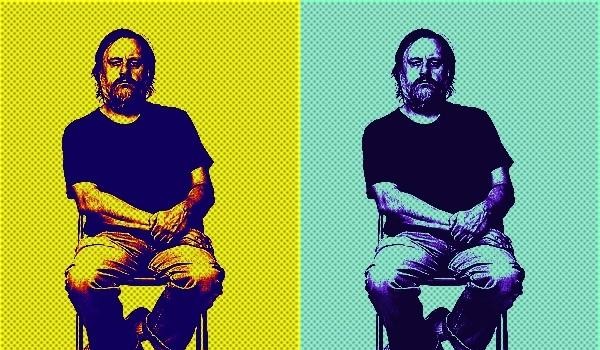Cyber-Protest is Cheap, Digital Disobedience Easy: The Dangers of Digital Disobedience
Julian Baggini
In 1964, a 46-year-old man was sentenced to life imprisonment for his participation in many terrorist activities, including the preparation, manufacture and use of explosives for the purpose of committing acts of violence and destruction. He was found guilty of injuring, damaging, obstructing or endangering both the health or safety of the public and the maintenance of law and order.
We do not generally describe such acts as ones of “civil disobedience.” We talk instead of terrorism and criminality. But it is not that simple. The man in question was one Nelson Mandela, the laws he broke were those of a manifestly unjust and inhumane apartheid state, and the trial that convicted him and ten others was condemned by the United Nations Security Council.
It is tempting to conclude sceptically that “civil disobedience” is just the phrase we use for criminal actions we happen to approve of. But just a moment’s consideration shows this cannot be true. To say that a rapist or a purely self-interested bank robber is committing an act of civil disobedience is not a legitimate use of semantic ambiguity, it is a flagrant misuse of language. There may be grey areas between legitimate law-breaking and criminality, pure and simple, but that does not mean there is no real distinction beyond the point at which they blur.
Right now, however, people do often simply decide that criminality is OK when they agree with the cause it serves. For example, those who think Wikileaks has had generally good effects tend to support Julian Assange, while those who claim he is harming national security oppose him. These verdicts do depend on whether his actions are judged to be criminal.
To many, this appears to be both moral and principled. Surely what matters is not whether the law has been broken, but whether or not the consequence is good or bad? However, this is a perilous moral road to go down, since it leaves it up to each individual to decide for herself which laws should be obeyed and which should not. This ignores a principle that is one of the most important bedrocks of civilised society: the rule of law. The rule of law means that the law applies to everyone equally, regardless of status, wealth, political position, or personal opinion. It is fundamentally what makes us all equal in the eyes of the state. Arguably, it is even more important than democracy, since we do withhold the vote from some people on the grounds of age, diminished responsibility or criminality, but we withhold the protection and application of the law from none.
The point of obeying the law is not that one agrees with every part of it. It is rather that we all follow the same laws as everyone else because that what enables us to live together. The decision to break the law should therefore always be a serious one. Furthermore, for such defiance to count as genuine civil disobedience, it has to be a public and principled protest. Clandestine civil disobedience is as oxymoronic as a secret protest march. The point of civil disobedience is to force change, not to avoid the restrictions of the status quo. The file sharer who furtively downloads therefore kids himself if he believes he is following in the noble tradition of the Suffragettes and the civil rights movement. When Rosa Parks took her place on the bus, she did not hope she wouldn’t get caught. Rather, she defied the authorities to arrest her.
There are times, of course, when civil disobedience is not practical and obeying the law not conscionable, hence the fugitive status of Robin Hood and Nelson Mandela. But such cases are only justified because of the extreme injustices of the regimes they lived under, and the brutality they would have been subjected to as dissenters.
Following the law less than scrupulously, by exceeding the speed limit by a few miles per hour, for instance, can also be harmless to the extent that the infractions are trivial, and justifiable to the extent that we share a tacit understanding that the rule of law is more or less strict in different circumstances, and so we treat ourselves as less equal before the law than others if we follow them meticulously when others are not.
In a reasonably free and open society, which rests on the rule of law, we should therefore only condone law breaking when it is minor and of a generally tolerated kind; or public and done with the attention of driving reform. That looks simple enough. However, the growth of the internet and social media has introduced new complications.
Take the Wikileaks case again. On the face of it, Julian Assange has followed the basic principles of civil disobedience, making no attempt to disguise his role in the exposure of secret information. True, he took precautions to avoid arrest, by hosting his site in countries where he would not face prosecution, for instance. But those who practice civil obedience only have an obligation to be open in their defiance of the law, not to make their incarceration easier than it need be.
Similarly, in a recent incident in the UK, thousands of citizens very publicly defied the law. The issue concerned so-called “superinjunctions”: court orders that not only prevented the press from reporting on details of the private lives of individuals who obtained the orders, but which even stopped them saying such orders had been obtained. When a Scottish newspaper revealed the identity of one such celebrity, thousands of people spread the word using Twitter and Facebook. Nothing clandestine about that.
But both the Wikileaks and the super-injunction cases show that social media has changed the civil disobedience game. Consider the Wikileaks case first. Assange was not just making a point by protesting, he irrevocably made a huge amount of information public to the entire world. His law-breaking had much more concrete impact than any single act of traditional civil disobedience ever could. This shows how technology can give an individual outlaw an incredible amount of power, and with power comes responsibility. Compare this to the likes of Emiline Pankhurst and Martin Luther King. Part of what was admirable about their protests was that they had no power other than the ability to make people think. When a lone protester can, in effect, overturn the law solely because they think it is wrong, we have to ask whether anyone is justified in using this power just because they can.
Even more interesting is the super-injunction case. Here, the psychology of what is going on is most telling. In a traditional protest, people decide to gather and voice their concerns. They seek a kind of safety in numbers, but there is a commitment in actually turning out, and a genuine feeling of making oneself public. Compare this to someone at home or on a bus, deciding whether to retweet the name of celebrity. It can be done in a moment, and requires no commitment at all. It doesn’t feel public. Indeed, it often doesn’t even feel personal. People can be notoriously abusive online because they feel no contact with those they are abusing, so their usual decency filters are off. What’s more, you also know that thousands of others are doing the same, so you know there is no practical way you could be prosecuted, unlike at a protest, where people are often arrested. This kind of instant SMS protest is therefore easy and cheap. It allows for the thrill of transgression without any of the costs. It feels more like fun than a crime.
When protest becomes so simple and cost-free, thoughts of the importance of maintaining the rule of law sound high-minded and irrelevant. This is reinforced by the contemporary cult of the individual, which prizes personal passions over public principles, following one’s own conscience over following the law. But the idea that what matters above all else is doing what we as individuals feel is right is a fundamentally undemocratic one. Democracy is about having your say, not always getting your way. Civil society depends on each of us being willing to compromise on our own preferences.
The undemocratic ethos is arguably undermined even more by the way in which social media allows groups to interact. Online, people easily form shared interest groups, and as Eli Pariser argued in The Filter Bubble, this allows us to each live in an artificial, self-contained world, where we only ever have our views reinforced, not challenged, and where we come to think that our worldview is the only reasonable one. Such groups can therefore also harness their power of the Internet to make cost-free and easy “protests” that could actually have serious effects on the lives of people who have information about them made public.
What are we then to do about all this? There is certainly no obvious legal remedy. Hard cases make for bad law, and the worst thing we could do is to rush in with ham-fisted legislation that risks stifling healthy dissent. What we can do is start changing the way we think about techno-dissidence. Right now, there is far too romantic a view of social media as a form of protest. People feel virtuous by association with the brave protestors of Tahir Square and Tripoli. But social media is a weapon like any other, and the fact that it has been used in the hands of the noble does not mean we too are virtuous when we use a mobile phone to defy the law.
Rather than be romantic, we need to remember that in the free West, cyber-protest is cheap, digital disobedience easy. Democracy and the rule of law, however, are difficult and hard-won. The combination of a strong feeling that our cause is just combined with easy ways of making a point can blind us to the seriousness of breaking the covenant to stand under the law equally. Unless we remind ourselves just how precious the rule of law is, we are at risk of undermining the very basis of a free society by thousands of tiny tweets.
Posted: May 9, 2012 at 4:59 pm










